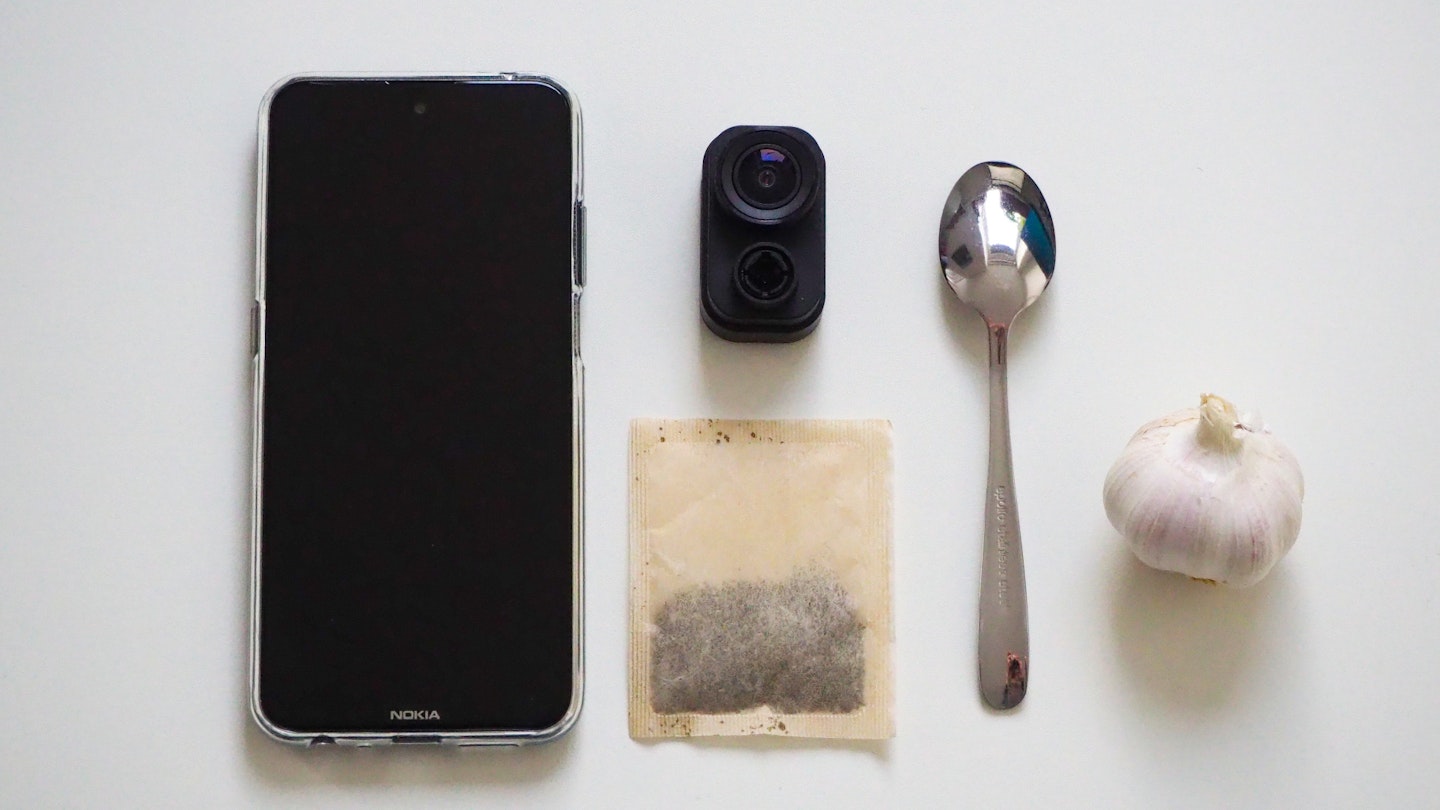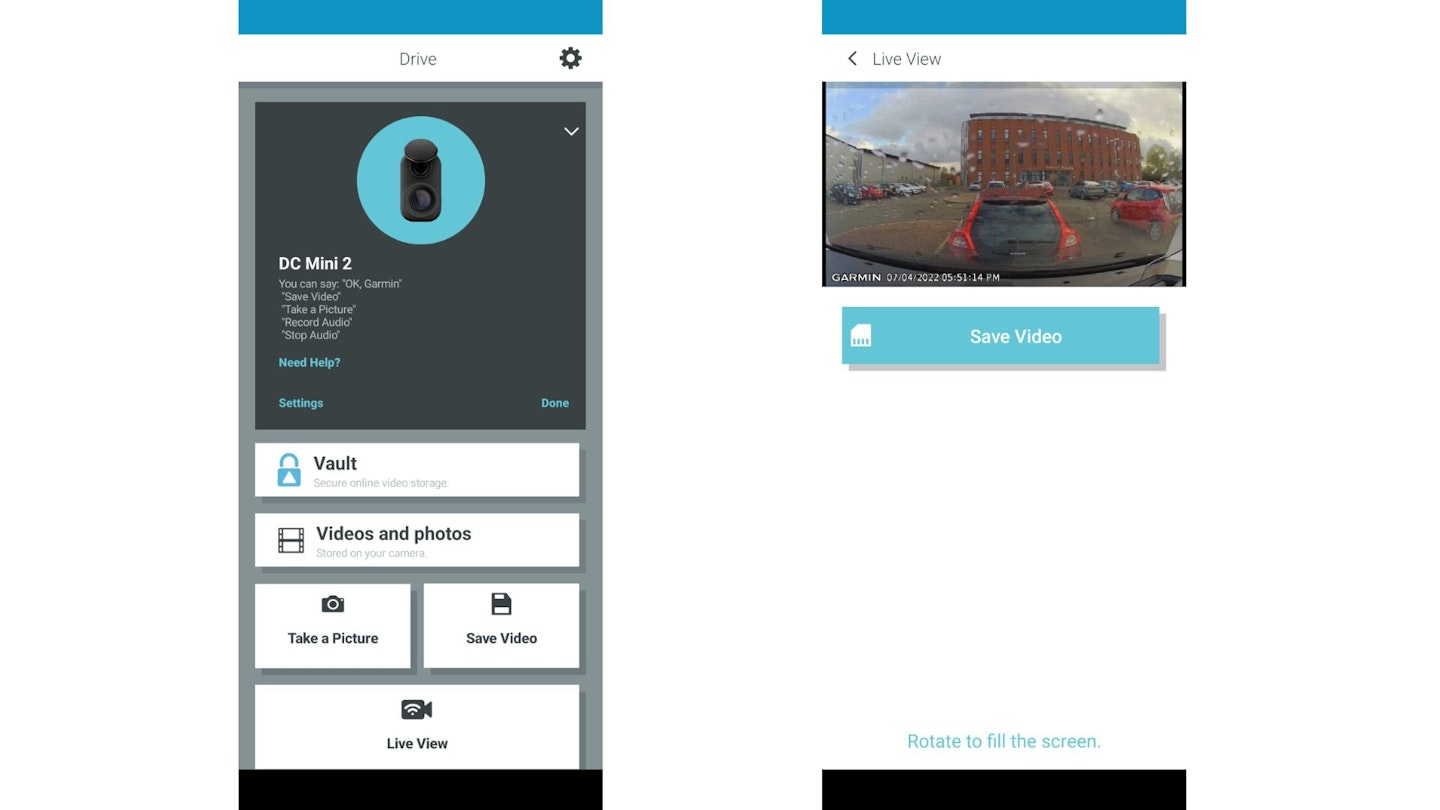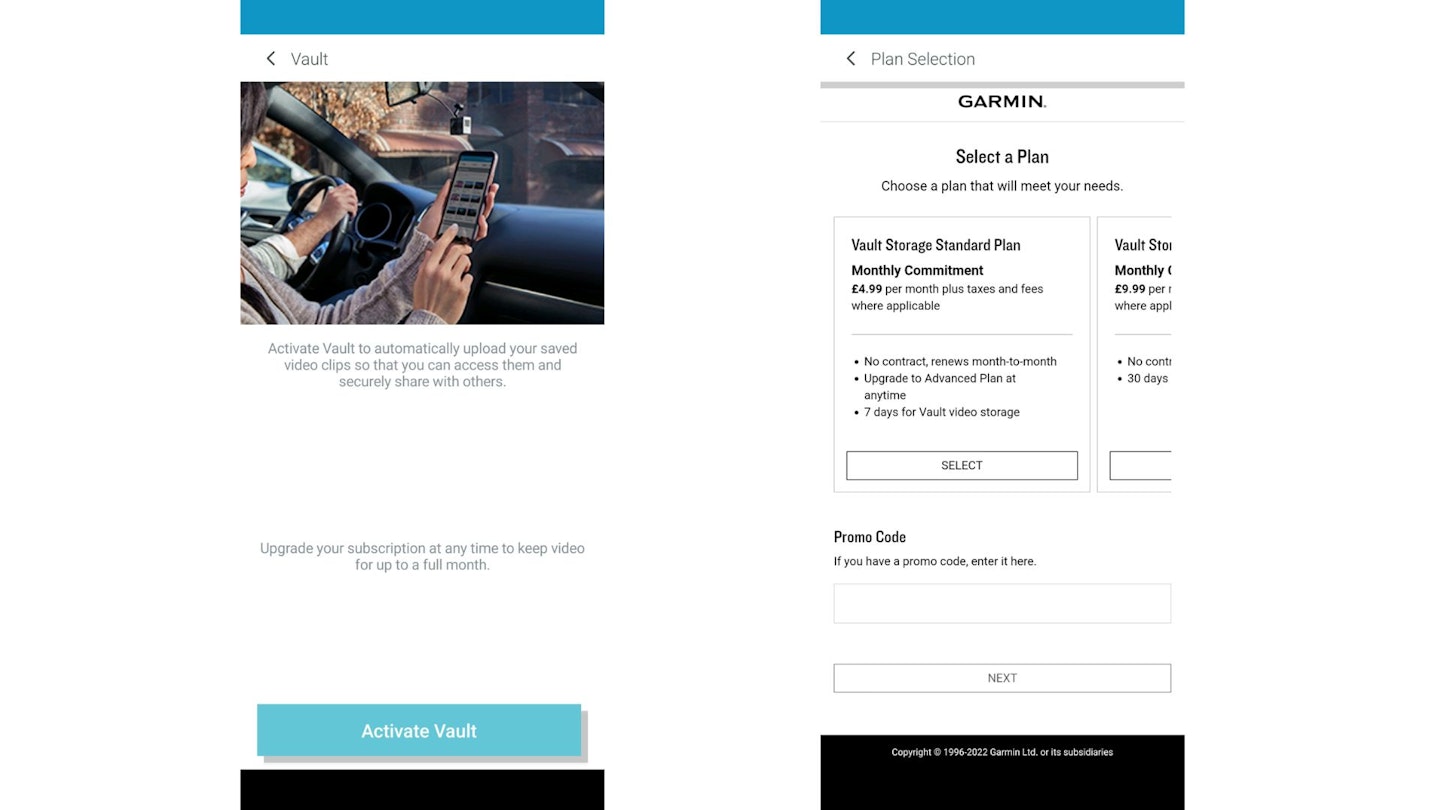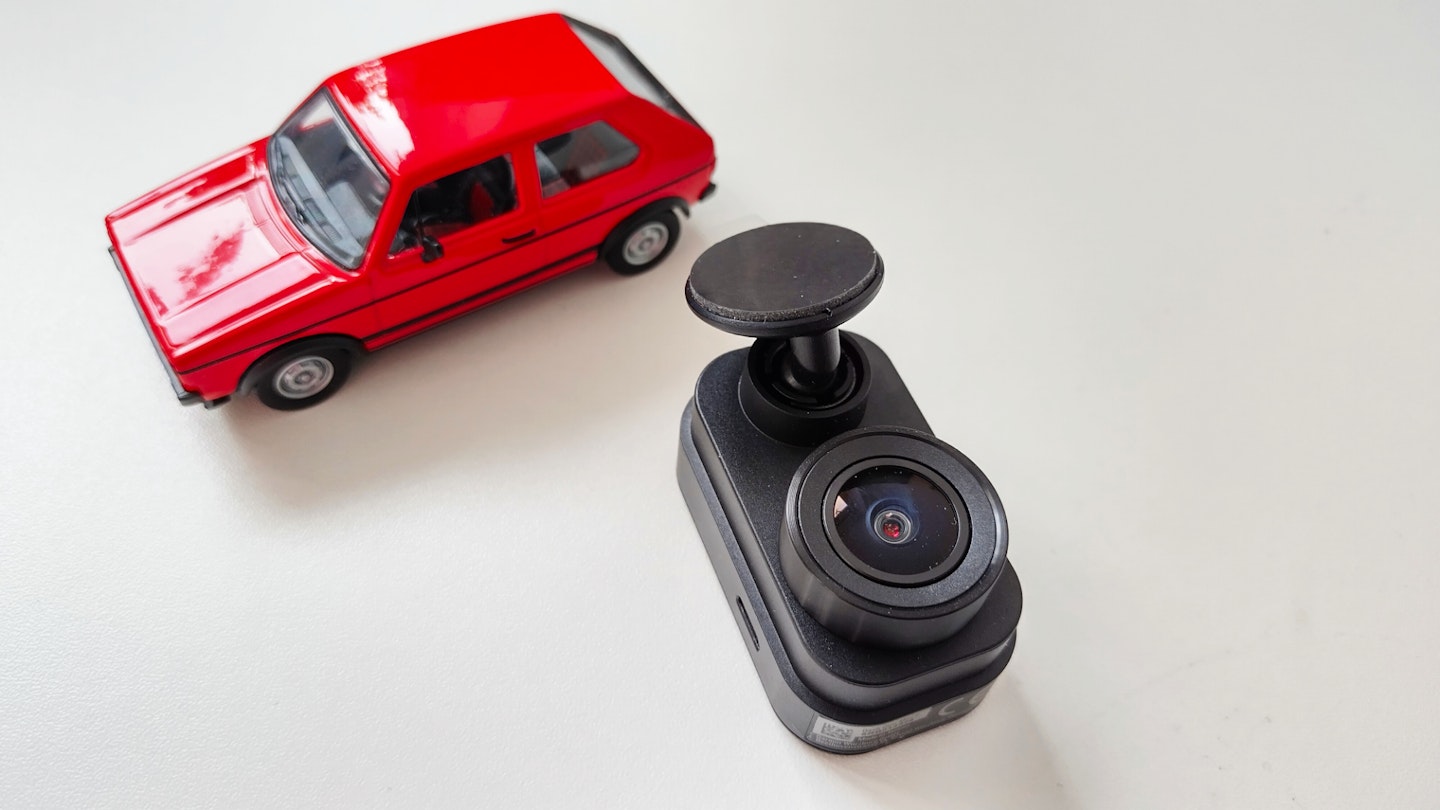In today’s world of microtechnology, one does not expect any compromise in performance as products shrink in physical size. Garmin’s Dash Cam Mini 2 is one of the smallest offerings in the dash cam world, and the Garmin name carries with it a lot of expectations, just like Logitech, Bentley, or Gran Turismo.
Therefore, even before we begin, presumptions surrounding the Mini 2's performance and quality rest on a much higher bar than if this were a super-budget, reverse engineered version produced by an anonymous manufacturer.

| Specs | |
|---|---|
| Resolution/frame rate | 1080p/30fps |
| Viewing angle | 140° |
| Dimensions | 3.13 x 5.33 x 2.91cm |
| Weight | 32.1g |
| Screen size | No screen |
| Max memory card size | 512GB |
| Bluetooth | Yes |
| Wi-Fi | Yes |
| GPS | No |
Meet and greet

Having unboxed the Mini 2, it was instantly added to a small collection of items that offered scale (and could also be the subject of a photography student’s edgy project). Be in no doubt, you could hide a garlic bulb behind the rear-view mirror of a car, but the Mini 2 is even more discreet.
Along with the dash cam itself, in the box, there is an in-car connector cable, a 12V plug with two USB ports, a spare adhesive mount, and a shorter USB cable for connecting to a computer. The second USB cable is certainly unnecessary because everyone already has 15 of those.
Setting up
The Mini 2 is supposed to be all about simplicity, or at least that’s what it seems to be about. However, the Mini 2 is so simple it doesn’t even have a screen which, paradoxically, adds a little complexity because you must use an app to operate it.

Fortunately, the app itself is easy to use. It’s how you gain a live view of what the camera is seeing and access recorded footage. You can also do this from a computer too via a memory card. On the app, footage is stored for 24 hours and if you want it to stay for longer you must give Garmin some more money to access a Vault Storage Plan.

The Mini 2 uses an adhesive pad to glue itself to a windscreen. The adhesive pads work very well indeed - but it commits you to a single windscreen. People chop and change cars reasonably frequently these days, what with PCP and hire-purchase agreements being all the rage.
Thus, a suction cup with the strength of a Northern Clingfish would be preferable – and they do exist because Nextbase supplies them with its dash cams. In fact, I stuck the Mini 2 to one of these Nextbase suction cups because I didn’t want the Mini 2 permanently attached to the test car.
Performance

Full HD 1080p is considered the bare minimum these days. While that’s true, it’s also a very good bare minimum, kind of like Japanese prison food. The Mini 2’s resolution of 1080p might appear a bit pathetic for a dash cam pushing towards £100, especially when dash cams with 1080p are available for £30. But there’s no reason to think you’ve been conned with the Mini 2’s image quality because it’s clear and crisp. It’s worth noting, however, that the Mini‘s image quality but does become a little grainy after dark.
I think increasing the frame rate from 30 to 60fps is more important because it’s smoother, and is particularly noticeable when footage is slowed down to examine an incident.

When the sun was out, the Mini 2 did pick up windscreen glare. You can reduce it by buying Garmin’s polarised filter, but it’s a £25 accessory, which is ridiculous. Garmin - either include it in the box or make it cheaper.

As is typical of most no-nonsense dash cams, there is very little to do once it’s installed. It turns on when you turn on the car and records the road, and that’s about it. It pays to keep your phone connected to the Mini 2 when driving because, on the off chance you need it to save a video, you can do so with voice commands.
Value
Quality products are worth paying for, period. That being said, the Garmin name does seem to push up the price of the Mini 2 a little too far, so it’s probably about 25% more expensive than it should be.
Conducting some in-house maths, the Garmin Mini 2 should be around £60 to £70. A price of £90 is a bit much for what is a neat but rather basic dash cam. Edging up to three figures makes you start to wonder what high-tech competition one could have for not much more.
The Mini 2 is of better build quality than the very cheap products and the app is better than most. These things are worth an extra £30 or so over the budget dash cams. However, while I did say that 1080p at 30fps is good quality but it’s still the bare minimum and equal to the most basic dash cams.
The rivals the Mini 2 is jostling with are pretty serious. For £90, Navitel offers the R6. It’s a little bigger than the Mini 2 and doesn’t have app connectivity, but offers 1080p at 60fps or 1440p at 30fps, plus a wider 170° viewing angle.
Dash cam heavyweight Nextbase offers the 322GW. The 322GW pushes over the £100 price tag but like the Navitel R6, offers 1080p at 60fps and quite a lot more besides. In addition to app connectivity, the 322GW has an excellent 2.5-inch screen touchscreen for faster operation. The 322GW’s image clarity is better than the Mini 2’s, thanks to its night vision software and 6-layer lens. There is also a subscription-based emergency SOS service.

Verdict
The Mini 2 has a lot going for it: its simplicity is advantageous rather than a hindrance, it’s very well-made and its minuscule size almost makes it invisible. However, its performance lies at the basic end of the dash cam scale. At the dash cams athletics day, it’s not going to win any medals except in the ‘who can hide behind the smallest bush’ event.
If the Mini 2 was £60 rather than £90, it would be a compelling case. But £90 puts it in the firing line of much more accomplished dash cams.
| Pros | Cons |
|---|---|
| • Smaller than a garlic bulb | • Low frame rate at this price |
| • Refreshingly simple | • If you want features, look elsewhere |
| • Simple setup | • Expensive accessories |
| • Reliable build quality |


